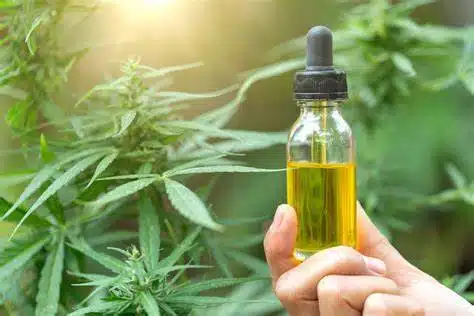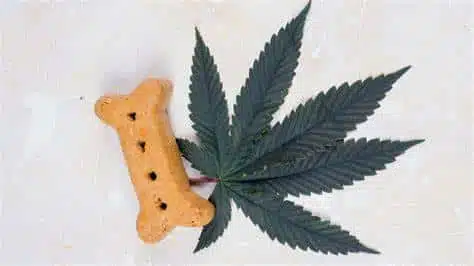Weed 101: Distillate & Isolate & Oil
There are several types of cannabis oils available on the market, each with its own set of benefits and drawbacks. It is important to choose the right oil for your needs in order to get the best quality and most out of your cannabis experience. We will discuss the three main types of cannabis oils below.
What is cannabis oil?
The term ‘cannabis oil’ is incredibly generic. Without any additional context it can be used to denote any type of oil made from any part of the cannabis plant.
This can include anything from hemp seed oil, which is made from the seeds of a cannabis plant, to hemp oil, which is made from low THC cannabis plants. These oils are very commonly called tinctures, which is a bit of a misnomer for marijuana products. The term cannabis oil would be more appropriate for most marijuana products on the shelf as the term tincture historically meant an ethanol containing extract. It can also be used to loosely denote high-THC crude oils like RSO (Rick Simpson oil).
Distillate
A solvent is a substance that can be separated from another substance by heating it to the point of evaporation. This process is called solvent extraction. The type of solvent used in the extraction is the main difference between the four most common types of cannabis oils. Petroleum-based solvents, such as hexane, butane, and pentane, are the most common type of oil used in cannabis oil production. Cannabinoid-based solvents, such as ethanol and CO2, are generally used for CBD-rich cannabis oils, though some THC-rich oils are extracted with these cannabinoid-based solvants as well. Plant-based solvents, such as ethanol and glycerin, are used for producing hemp- and marijuana-derived CBD oils.
Oil
The main component of cannabis is the decarboxylated (raw) plant material known as “trim.” Trim is then cooked with various types of solvents to produce oil. Oil is the most common type of cannabis oil. It contains both the cannabinoids which provide the high and the resin content which provides the flavor and aroma. Because it is derived from the raw trim, oil is safe to consume and is non-psychoactive.
Isolate
Cannabinoids can be isolated from plant material using an isolation solvent, resulting in an oil that is chemically identical to the plant matter. This is why isolate oils are so valuable, as they provide a way to consume cannabinoids without consuming the plant material itself. There are many different types of isolation solvents that are used in the cannabis oil industry, including ethanol, acetone, Isopropanol, hexane, CO2, and others.
What are the key distinctions between distillate, oil, and isolate?
Since cannabinoids and terpenes are the main components of cannabis oil, they are extracted from the plant material and isolated. This results in a highly concentrated oil, which can be used on its own or mixed with other oils to create a hybrid product. For example, a distillate oil can be mixed with an isolate oil to create a product that contains a combination of both cannabinoids and terpenes. Some companies will also add a small amount of THC distillate to create a hybrid product that contains some THC.
Distillate oils are ideal for those who need a quick and discreet high, and they also work well in vape pens. CBD oil is becoming increasingly popular for its anti-tremor properties, and it also has a fast onset when used to treat anxiety and depression. However, distillate oils produce a lot of smoke and are not suitable for baking. Isolate oils, on the other hand, are more potent and effective than distillates, produce no smoke, and have no odor.
There are different types of cannabis oils available, each with different benefits. Petroleum-based oils are the most common type of oil and produce strong highs. Cannabinoid-based oils have less potent compounds, but are great for treating tremors. Plant-based oils have a low cannabinoid count, but have long-lasting pleasant aromas. Isolates are the most concentrated form of oil and do not contain any cannabinoids or terpenes. These oils are best for stealth vaping and for use in hybrid products. Make sure to choose the right type of oil for your needs.
How to extract cannabis oils
There are several different ways a cannabis oil can be processed. These include:
1. CO2 extraction
When crafting cannabis oils, manufacturers may use CO2 to extract cannabinoids from the plant. This method is often considered to be one of the safest ways to extract cannabis as it does not require the use of an hydrocarbon (explosive) solvent.
CO2 extraction can be supercritical or subcritical. Supercritical CO2 is carbon dioxide that’s been heated and or pressurized until it exists in a state between liquid and gas.
Supercritical extraction is very useful as it produces a large yield of CO2, but the extreme temperatures can destroy volatile compounds like terpenes. Subcritical CO2 extraction uses lower temperatures to preserve the quality of the plant’s compounds.
2. Lipid-based extractions
Lipid-based extractions infuse fats, usually carrier oils, with cannabis until cannabinoids are absorbed. Lipid extractions are the classic example of making cannabutter at home. While less precise and efficient than other extraction processes, they tend to preserve many of the plant’s cannabinoids and are relatively easy to do, making this an ideal extraction method for patients.
3. Ethanol-based extraction
Another way to make cannabis oil is to extract the plant’s cannabinoids with ethanol.
This technique involves soaking cannabis flowers in ethanol, a process that strips the plant of its cannabinoids, but also of many other parts of the plant. However, the polarity of ethanol means it has a proclivity to bind to water soluble parts of the plant such as chlorophyll, which can produce a bitter flavor if not removed.
The resulting mixture is then subsequently processed and eventually integrated into other products.
Ethanol based extractions are often more cost effective than other extraction methods, and they are usually touted as full spectrum extracts. In fact, ethanol (or technically isopropyl alcohol) is the extraction method used to make crude oils like Rick Simpson Oil (RSO).
Conclusion
If you are interested in buying weed online and THC products, check out West Coast Releaf online weed dispensary and shop for your weed online and cannabis products at westcoastreleaf.co!


